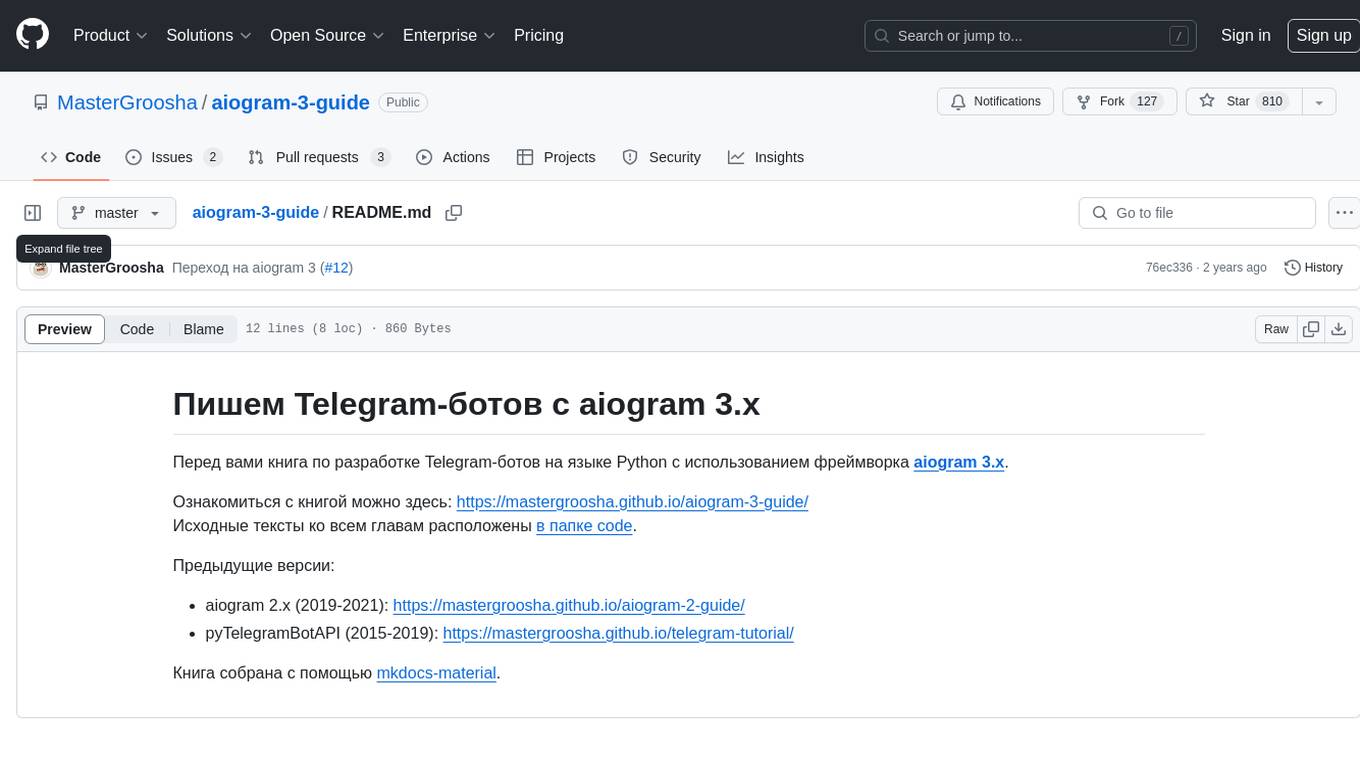Best AI tools for< Mkdocs-material Developer >
Infographic
0 - AI tool Sites
No tools available
1 - Open Source Tools

aiogram-3-guide
This repository contains a guide on developing Telegram bots in Python using the aiogram 3.x framework. The guide is available online and includes source code for all chapters. It builds on previous versions for aiogram 2.x and pyTelegramBotAPI, and is created using mkdocs-material.
github
: 812
0 - OpenAI Gpts
No tools available